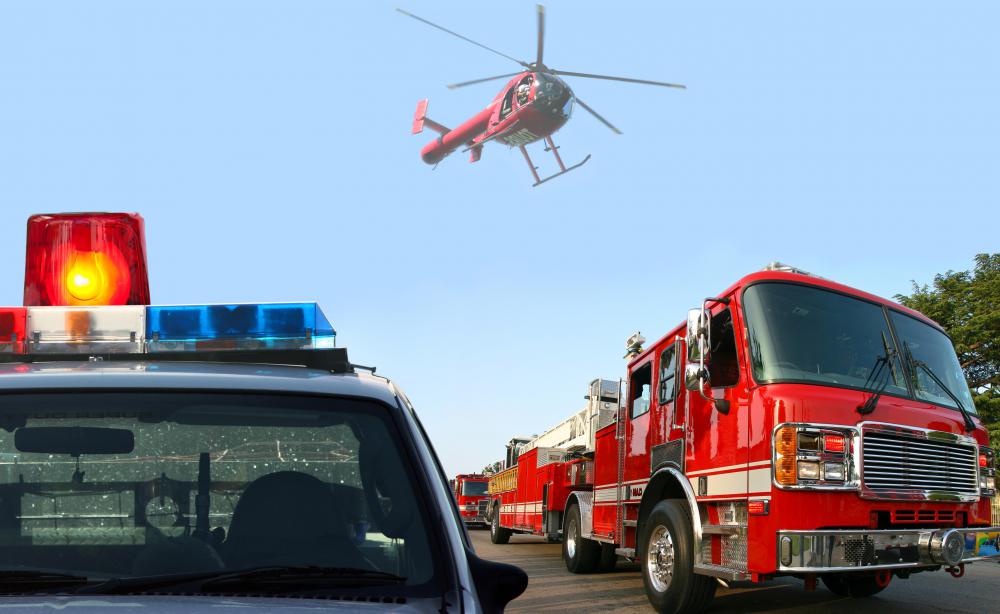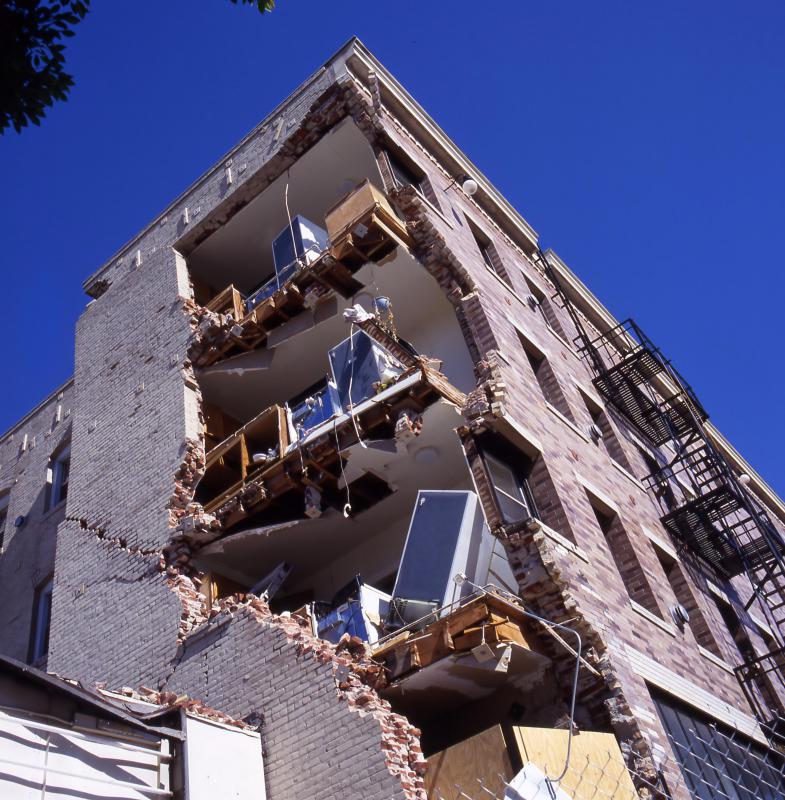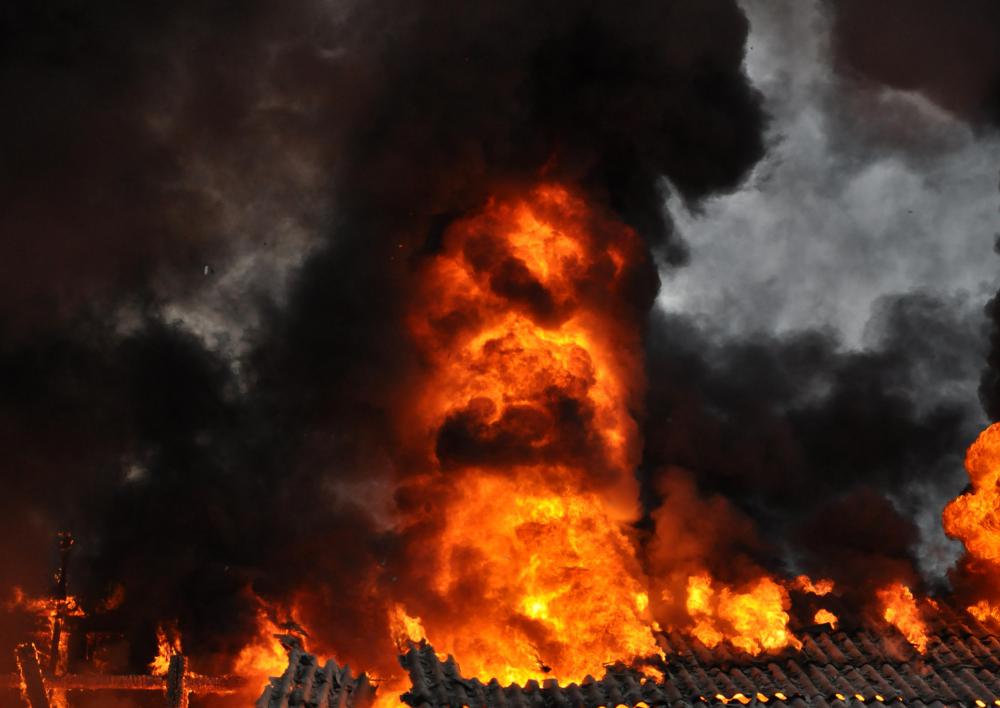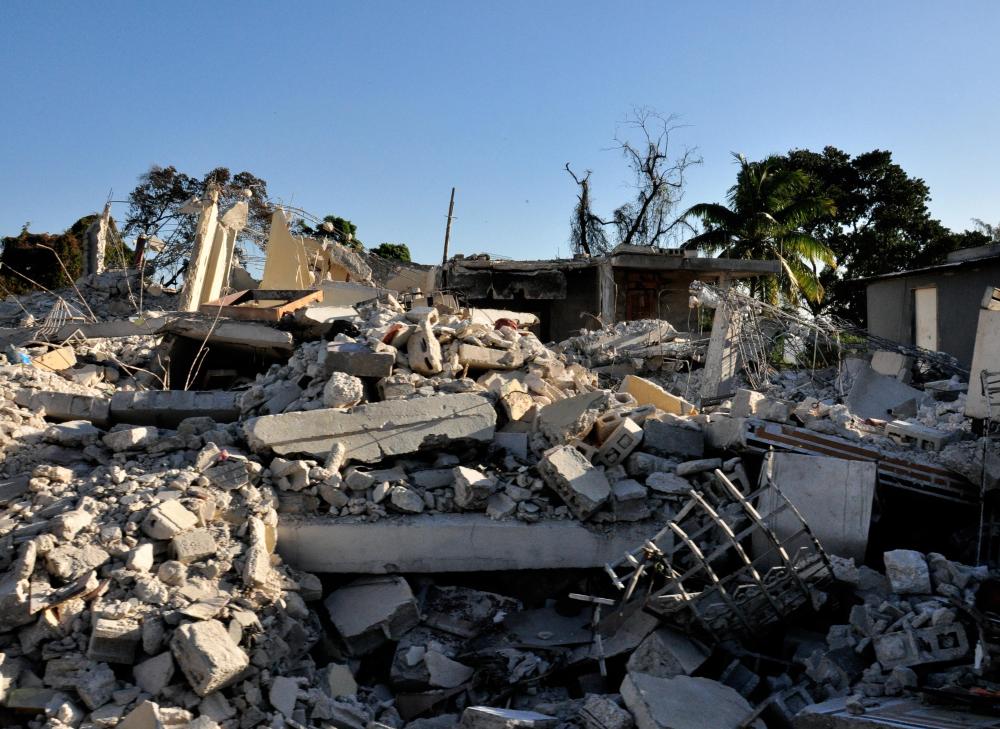At SmartCapitalMind, we're committed to delivering accurate, trustworthy information. Our expert-authored content is rigorously fact-checked and sourced from credible authorities. Discover how we uphold the highest standards in providing you with reliable knowledge.
What Is Emergency Management?
Emergency management is the process of creating and implementing strategies to manage emergencies or disasters. The four main principles of emergency management are preparedness, mitigation, response, and recovery. While management programs are often maintained on a governmental or organizational basis, they can also be used by families and small communities in order to better handle emergency situations.
One of the first keys to handling an emergency is disaster preparedness. To prepare for an emergency, an emergency management team must assess potential problems and set plans in motion that can help a community better weather a disaster. For instance, building tornado shelters and stockpiling them with water and canned goods can be one way to prepare for a possible tornado. Funding research aimed at developing advanced earthquake or tsunami warning technology could also be a means of disaster preparedness.

Mitigation refers to the steps of disaster management that reduce the potential damage of a catastrophe. In earthquake-heavy California, for example, some local governments have ordered older buildings to be retrofitted to withstand an earthquake, while new buildings must be built to an earthquake-safe code. By cutting down the hazards that could arise during a disaster, emergency management teams can help reduce the level of danger.

Much of the effectiveness of emergency management lies in the ability to quickly and ably respond to a disaster. Creating a strong response plan includes crafting clear, concise instructions for how emergency responders, such as medical workers or firefighters, are to act in a crisis. Response plans may also include several sets of contingency plans, which can be activated should unforeseen circumstances prevent the use of a primary response plan. Every minute wasted in a disaster can cost lives and financial damage, so the creation of an agile and effective response plan is key to surviving any catastrophe.

Mechanisms for recovery from a disaster can also be crucial to a disaster readiness plan. Restoring water, electricity, and other essential services following a natural disaster may be major concerns for a recovery team. After initial concerns are managed, recovery efforts may focus on assessing and repairing structural damage and finding temporary housing for displaced citizens and businesses. Without recovery plans, communities hit by a disaster can be left drifting for years without the ability to rebuild or move forward.

Large-scale emergency management is often handled by government organizations, such as the Federal Emergency Management Agency in the United States, or the Emergency Management Agency in Australia. On a regional level, police, fire, and medical responders may also use the principles of emergency management to address potential crises in their community. Businesses, schools, and other small organizations frequently have an disaster response plan unique to their workers or students. At home, families can help prepare for possible emergencies by eliminating safety hazards around the house, creating a clear plan of action for any likely disaster, and maintaining an emergency kit with food, water, medicine, and other essential supplies.
AS FEATURED ON:
AS FEATURED ON:





















Discussion Comments
@Wisedly33 -- I heard a press conference with a county sheriff the day after the storms hit. He basically said he and his deputies would not tolerate looting of any kind, and they would be shooting to hit people, and would not be very particular about whether they hurt the looters or not.
Not surprisingly, there were very few instances of looting, even in the larger cities where the power was out. It was all due to good emergency management. People were ready for the storms and law enforcement had the people in place to protect citizens and their property.
@Scrbblchick -- I remember 4-27-11 all too well. What a horrible day. I know one thing they did in several counties that took hard hits was to get the school buses to serve as ambulances for the less critical patients. This allowed EMTs to get people to the hospital who were in need of urgent treatment, surgery, life support, etc. All this was because of good emergency management.
We had been hearing about the brewing weather situation for days, so the emergency management agencies got their acts together early and were able to deal with the disaster, I think, about as well as anyone could.
When the April 27, 2011 tornadoes struck Tuscaloosa, Alabama, one hit the emergency management office, so they had to pack up and find temporary shelter. Fortunately, they received offers of help from surrounding counties that had not been hit as hard, and they were able to borrow computers and help coordinate the response from another place.
That outbreak was so widespread that it nearly overwhelmed so many counties that were affected by the storms. Over a million people in the state were without power -- and Alabama only has about 4 million people, anyway. But people stood together and helped each other and the state recovered.
Post your comments